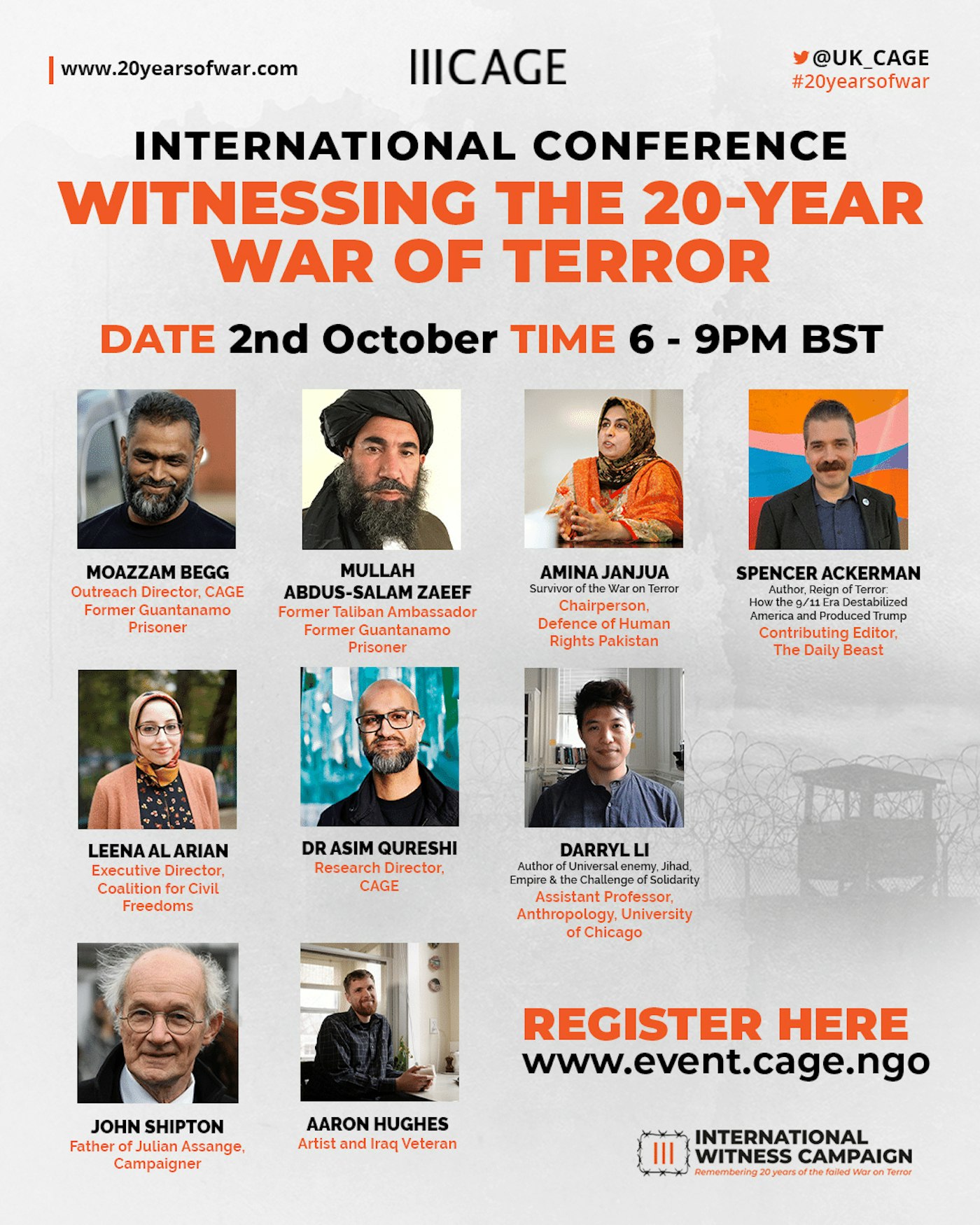16 Years Disappeared: One Woman’s Struggle to Find Her Husband
by Amaliah Team in World on 1st October, 2021
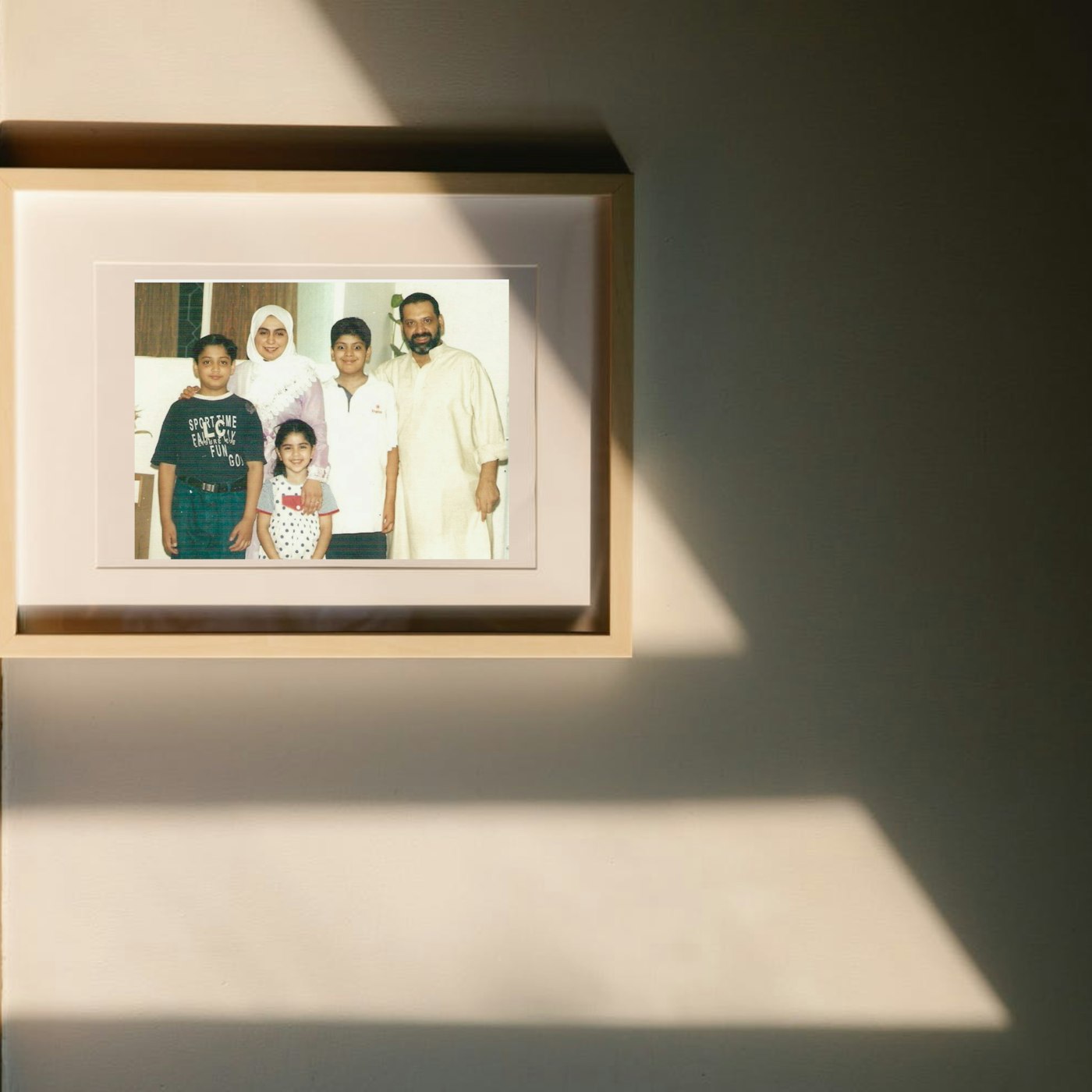
It was a Saturday that started like any other day. Amina, her husband, Masood Ahmad Janjua, and three children were all gathered together, for breakfast. Amina remembers her husband’s smiling face, the way he cracked jokes with the children and teased her. Their life was a picture of domestic bliss.
Masood ate and drank a cup of tea before heading to the door and kissing Amina and his three children goodbye to go and meet a friend. Amina’s heart felt uneasy; she had a feeling that something bad was about to happen. Something inside her wanted to stop her husband, to tell him not to go. She brushed that feeling off and didn’t say anything.
That day became the last time Amina saw her husband. On 30 July 2005, Masood Ahmad Janjua was forcibly disappeared by Pakistani security services. His whereabouts remain unknown till this day.
“For months, it felt like time and life itself had stood still in our house; the children couldn’t go to school, my husband’s businesses shut down and all his hard work that went into establishing them went down the drain. We were struggling to survive as a family, both emotionally and financially,” Amina says.
In 2007, a man who had been released from a detention center in Pakistan run by intelligence services contacted her and reported seeing her husband in custody there. This gave Amina the spark of hope she was desperately searching for. Soon after, she founded the human rights group, Defence of Human Rights Pakistan, an organisation that advocates on behalf of families all over Pakistan who share Amina’s experience.
“Today we have 2,825 reported cases of enforced disappearances in Pakistan, out of which 1,358 have been traced by the grace of Allah and our continuous and tireless efforts. Unfortunately, 77 of those who have been forcibly disappeared ended up losing their lives in custody. My husband remains one of the disappeared.”
We interviewed Amina ahead of the ‘Witnessing the 20-year War of Terror’ conference where she is due to speak about her husband and the struggle to learn the truth about what happened to him. This is her story.
The ‘Witnessing the 20-year War of Terror’ conference is part of The International Witness Campaign which has gathered 55 international partners to commemorate the 20-year anniversary of the ‘War on Terror’, and to remember the millions of people affected across the globe. It explores two decades of the ‘War on Terror’, its impact, its failures and its future, while promoting solidarity, justice and dialogue.
Click here for more information and to register for the conference.
Amaliah: Can you tell us more about your husband Masood Ahmed Janjua and his case?
Amina Masood Janjua: My husband Masood Ahmad Janjua was a successful businessman and educator in Rawalpindi and Islamabad. He ran two colleges that taught computer science and fashion design. In spite of how busy he was running his many colleges and business ventures, he always used to dedicate time to taking care of his ageing parents, me, his wife, and our three children. He had a very lively, loving and caring personality, and he was loved and cherished by all, especially by his family. He was also a kind and loving friend who took care of everyone around him.
On 30th July 2005, my husband Masood and his friend Faisal were travelling to Peshawar on a Daewoo Bus [an inter-city bus service common in Pakistan]. They never came back and we have not heard a single word from them since. Later on, we found out through the testimony of an ex-prisoner called Dr Imran Munir that Masood had been seen alive in custody and was abducted and forcibly disappeared by Pakistani army intelligence agents. We brought his case before the Pakistani Supreme Court and we fought for the truth to be revealed about my husband’s whereabouts for 14 years. However in 2018, we received the news that my husband’s case was disposed of by the Supreme court all of a sudden, at a time when I, the complainant and petitioner, was attending a conference abroad on the 70th Anniversary of the Universal Declaration of Human Rights. Despite the Supreme Court’s rejection of my husband’s case, we have continued the fight and it has now been 16 years of continuous struggle for the truth to be revealed.
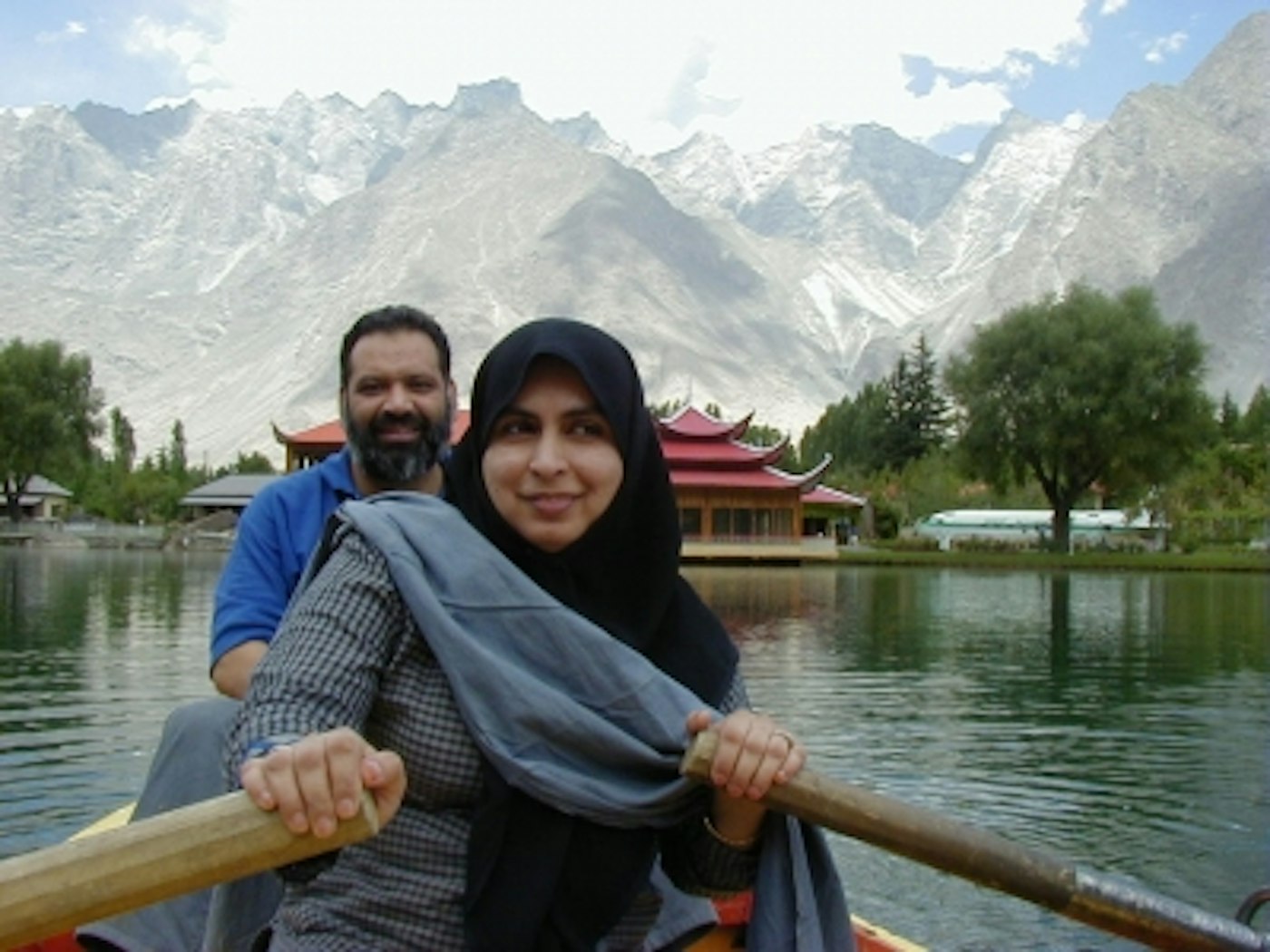
Amaliah: You are the chairperson of the human rights group Defence of Human Rights Pakistan – can you tell us more about the work that your organisation does? Why did you set it up and how many cases like your husband’s have you come across?
Amina Masood Janjua: The journey of a housewife, mother, artist and poet turning into a full-fledged Human Rights Defender has not been an easy one. I had a breakdown and was completely heart broken when my husband disappeared.
For months, it felt like life had stood still in our house; the children couldn’t go to school, my husband’s businesses shut down and all his hard work that went into establishing them went down the drain. We were struggling to survive as a family, both emotionally and financially.
Eventually, I realised that no help would come, and I gathered enough strength and courage to start a movement to trace the whereabouts of Masood. Very soon into starting this work, I realised that it wasn’t just my husband who had been forcibly disappeared, but that there were countless other cases like his of brothers, husbands, fathers, uncles and sons who had been disappeared in the same way.
Alhamdulillah, from the very beginning, I took the decision to work on all those cases, not just my husband’s case, and to raise my voice for all the victims of enforced disappearances in Pakistan. I began by writing simple applications to the Chief Justice of Pakistan for disappeared persons whose families I came across. Eventually, hearings started for 16 cases of the disappeared in October 2006. I also organised many protests before that where my family along with other families organised activities to bring attention to the issue of enforced disappearances, including organising a continuous sit-in in front of the Parliament House for two months.
Although our cases were given some consideration by the Chief Justice, it wasn’t enough to bring our loved ones back. I along with other families did not give up our struggle, and we decided to name this movement the Defence of Human Rights. Our motto is ‘Determination, Struggle and Awareness’. Through the organisation, we were able to file legal cases, organise more protests and rallies, conduct press conferences and raise the public’s awareness through media interviews and publishing articles. As our movement continued to gain momentum, I found myself appearing more and more in the Supreme Court to discuss the cases of the disappeared. Their numbers grew until we were dealing with 749 cases across Pakistan.
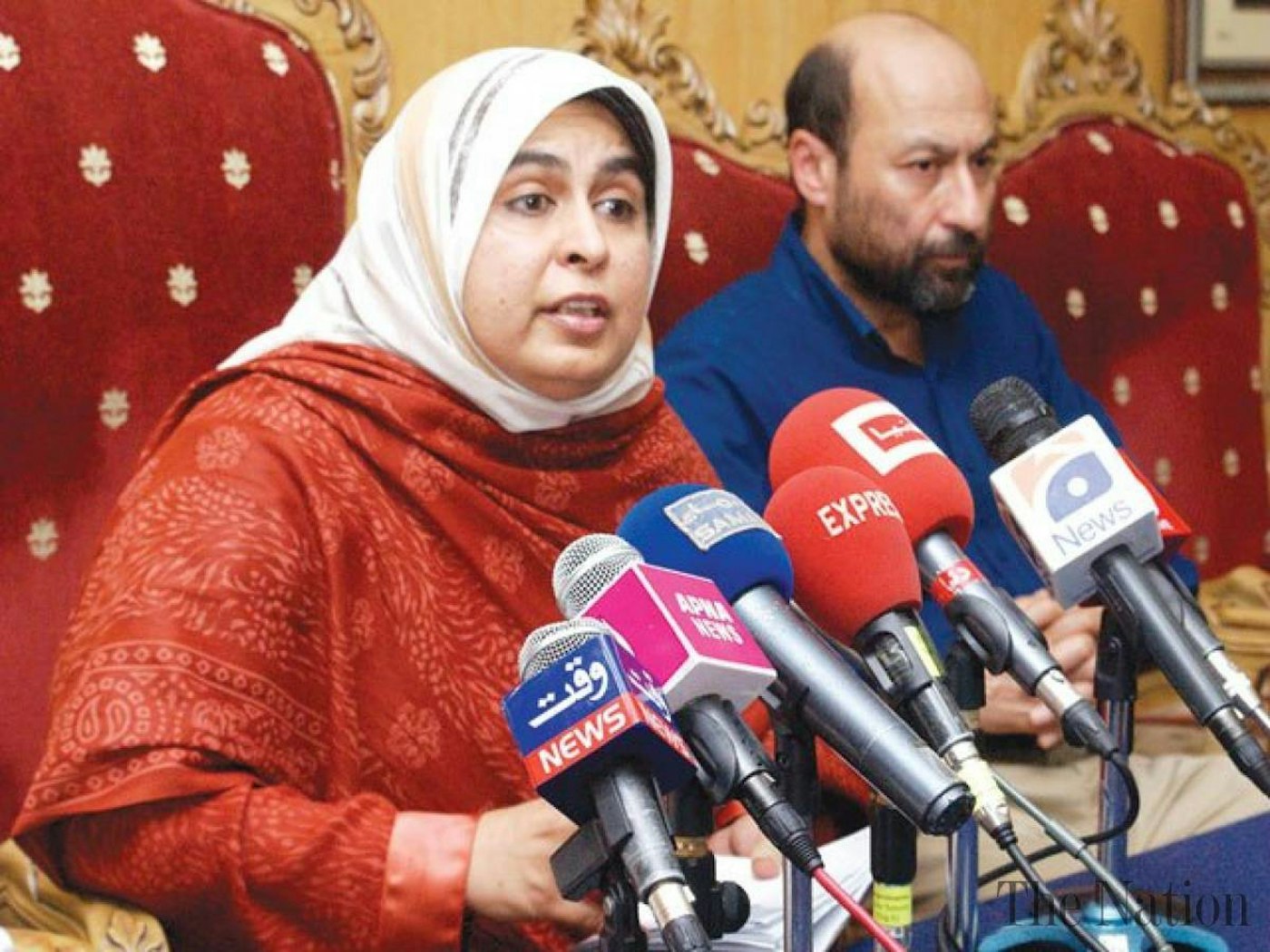
We used my husband’s college as an office where people could come and report cases of their loved ones being forcibly disappeared. We eventually had to give up that space as we couldn’t accommodate the sheer number of people coming to report cases. In 2010, the Defence of Human rights was formally registered as trust, and in 2013 we moved into our new independent office in Rawalpindi. I am now working there full-time and dedicating all my efforts to the organisation and for the cause of helping the families of the disappeared.
Today we have 2,825 reported cases of enforced disappearances in Pakistan, out of which 1,358 have been traced by the grace of Allah and our continuous and tireless efforts. Unfortunately, 77 of those who have been forcibly disappeared ended up losing their lives in custody. My husband remains one of the disappeared.
Amaliah: How old were your children at the time of their father’s enforced disappearance? How has growing up without their father affected them? And are they involved in advocating for him in any capacity?
Amina Masood Janjua: My sons Muhammad and Ali were in their teens, 15 and 13 respectively, and my daughter Aishah was just 8. The boys were bubbly and had a mischievous personality, while Aishah was more on the quiet side and sensitive, but all of them were full of life, and they were all very close to their father. When this traumatic incident of Masood‘s disappearance happened, it was as if hell had fallen on us. My children were shocked and lost all the liveliness and enthusiasm for life. It was something very difficult at the time and it has definitely impacted them growing up.
Facing the stigma of having a father who is disappeared and navigating the grief that came with losing their father at such a young age forced them to grow up before their time. They became very mature and wise for their age, so much so that it surprised my friends. I recall a time when Aishah was just 9 and she told me about a conversation she had with one of her cousins: “Ammi he doesn’t even know what a Supreme Court is!”
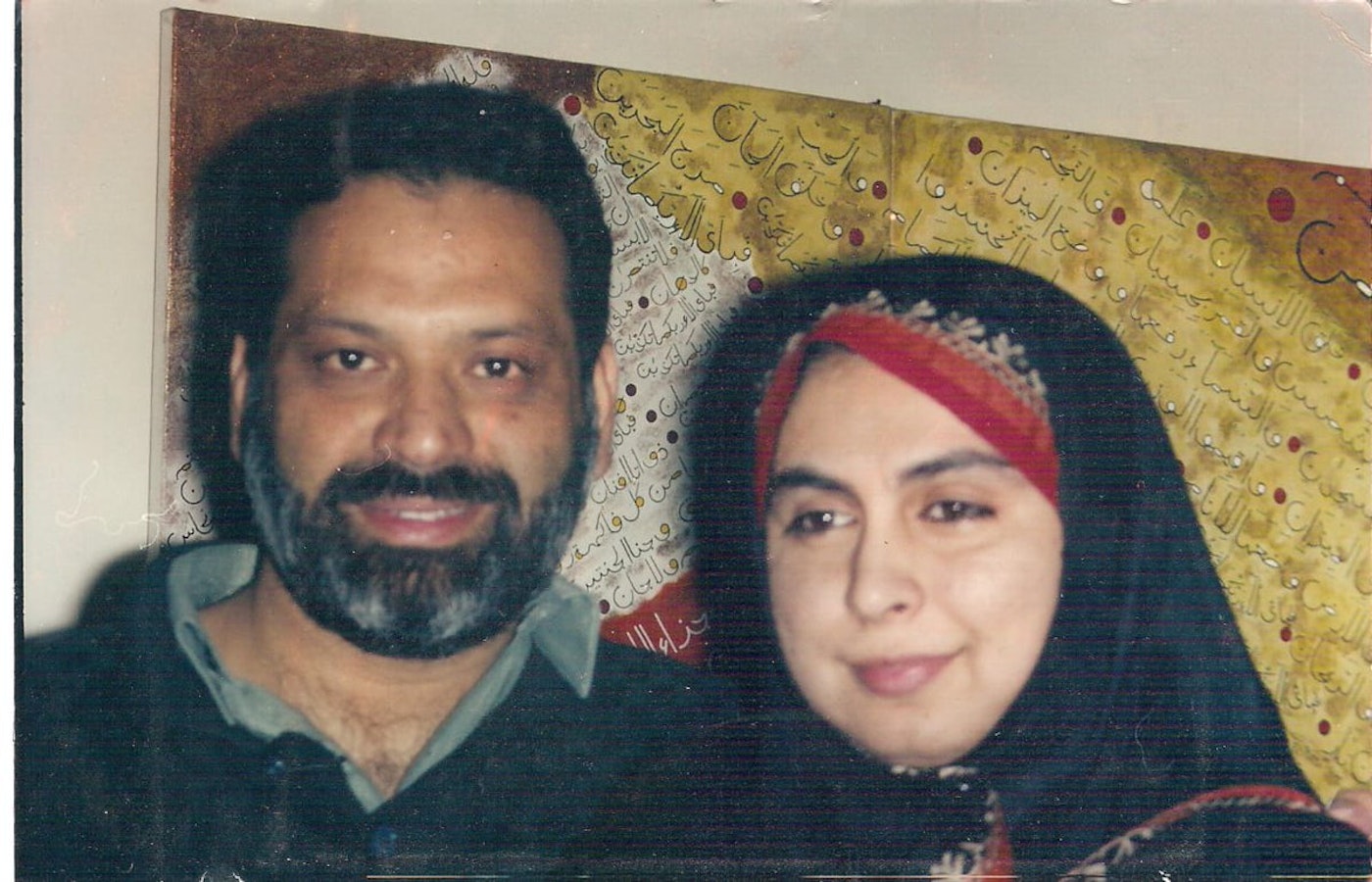
Our grief made our bond stronger and all three of them stayed by my side the whole time. When the movement for the disappeared kicked off, they missed school to join me at court hearings, or protests and rallies. The grief I faced engulfed me to the point where I didn’t realise that the best place for my children to be was at school. I thought that they needed their father more than anything else in the whole world, and to achieve that, we should struggle and sacrifice everything we had. But things clicked for me one day at a rally the families of the disappeared had organised.
The rally was peaceful, until Pakistani security forces decided to attack the families with batons. We were separated from our children and my sons were badly beaten. My eldest son, Muhammad, was thrown into a police van and taken away.
I was beside myself and started shouting and cursing the police. Aishah was pleading and fainted on the road. It was after that incident that I decided to move my children away from the struggle and pain of activism. I retreated away from the world and find myself bed-bound from the grief. I would never have been able to get up again and carry on with life if my children had not insisted that I keep going and start an official campaign for the disappeared.
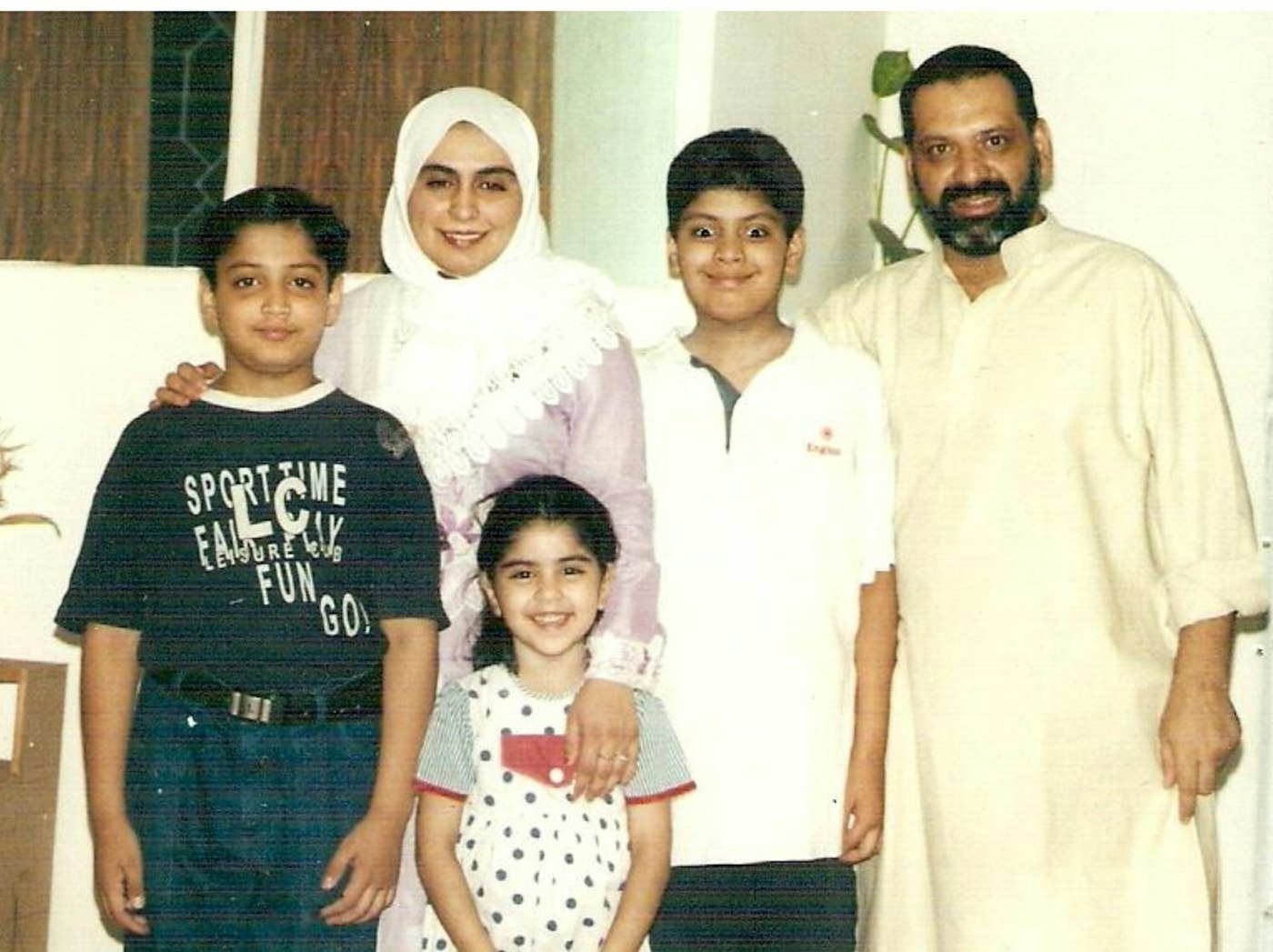
Though my children are all grown up now, the impact of their father’s enforced disappearance has affected every aspect of their life. After completing her bachelors degree in Developmental studies, my daughter Aishah wrote her thesis on the Impact of Enforced Disappearances on Female Family Members. She grew up watching me engaged in the cause and knew how important it was, not only for her father, but for all of us. She herself felt deeply about the cause of the disappeared and she eventually joined the campaign to help me. Now she works as a campaign and research officer at our organisation, the Defence of Human Rights.
Amaliah: You have been an outspoken critic of ‘The War on Terror’, and the way in which Western nations have enacted countless legislations and policies targeting Muslims, resulting in many cases of arbitrary detention, torture, and enforced disappearances in the Muslim world. Can you explain the personal impact that the War on Terror has had on your husband, family and your activism work?
Amina Masood Janjua: The impact of the so-called “War on Terror” on my family can not be expressed in words. Pakistan was a frontline ally of US Nato Forces, a partner in all of their wrongdoings, and gross violations of human rights which include enforced disappearances, killings and the rendition of Pakistani citizens to US-controlled prisons such as Bagram and Guantanamo Bay. My heart goes out to the victims of these horrors.
Often, I feel like there is a fire burning in my chest in place of where my heart should be. My children and I have been in a continuous struggle for the last 16 years. The enforced disappearance of my husband and the father of our children has left such gaping wounds in our lives, and deep scars on our hearts which will never heal.
I have been transformed into an iron lady, as people call me now, from what I was – a delicate artist- before this nightmare descended upon us. My husband is suffering endlessly in an underground secret location no one knows about. All I can do is pray that Allah protects him and blesses him with immediate freedom so that we are reunited with him. Ameen
Amaliah: What has the reaction been, from the Pakistani/International Governments, NGOs, or others in your community to your efforts to record human rights abuses and cases of enforced disappearances?
Amina Masood Janjua: Amnesty International held a conference in Islamabad in which it invited all the families of the disappeared to speak about their struggle. Similarly, Human Rights Watch (HRW) gathered testimonies and issued reports on this issue. CAGE recorded our stories of torture and grief and issued a report. Local organisations, activists and lawyers have also played a crucial role in helping us.
The government have dragged their feet on this issue, although they did show solidarity with me and my cause. Almost all the heads of the states of Pakistan have met me and promised to bring my husband and all the disappeared back to us, but we are still waiting on them to fulfil their promises to us.
Pakistan is facing a lot of international scrutiny because of such reports, but that has not stopped them from continuing to forcibly disappear civilians, even though the “War on Terror” has been declared over and the US has left after a historical defeat.
Amaliah: You are due to speak at the ‘Witnessing the 20-year War of Terror’ conference as part of The International Witness Campaign. The campaign is currently made up of 55 organisations – how significant is it that such a large group of organisations and individuals are coming together to bear witness, especially after 20 years?
Amina Masood Janjua: I am honoured to be speaking at this conference on the failed “War on Terror”. It is an important and unique moment in which we come together to hold the US and NATO Force accountable for all the human rights violations, atrocities and abuses they have inflicted, particularly on Afghanistan but also on Pakistan and the Muslim world. This opportunity should be used, not only to share our experience of grief and torture, but also to celebrate the end of the brutal “War on Terror”and that the US has left with great humiliation and defeat. Our priority should also be to support and rehabilitate the victims of torture, rendition, drone strikes, looting and bombing, all of them viscously targeted in the name of bringing “peace” and “development”.
Amaliah: All over the world the struggle for the disappeared is a struggle often carried out by women. Have you established any links with other women or rights groups around the world working on the issue of enforced disappearances?
This is true and I have indeed established close links with brave, daring and courageous women around the world who are standing up for their loved ones that have been forcibly disappeared, despite all the threats and obstacles they face. Yvonne Ridley in the UK is someone I consider a sister and a best friend.
We joined forces in 2008 when she came to Pakistan and discovered that Dr Aafia Siddiqui was being held in Bagram prison as prisoner 650. We both share a continuing struggle for the disappeared and the release of Dr Aafia from her horrific conditions.
I am honoured to have met María Adela who is one of fourteen women who founded the ‘Mothers of the Plaza de Mayo’ movement in Argentina after her son Daniel was abducted and disappeared in November 1976. I am also honoured to know Mary Aileen Diez-Bacalso from the Philippines who is the president of the International Coalition Against Enforced Disappearances (ICEAD) – she is a dear friend and invited me to be a part of ICEAD as well as the Asian Federation Against Involuntary Disappearances (AFAD) which are all coalition organisation fighting against enforced disappearances. AFAD has 16 member organisations which are all based in Asia. My organisation is also affiliated with AFAD, whereas ICAED includes more than 40 member organisations, all of whom focus on disappearances in Latin America, Africa and Europe.
Amaliah: What message would you like to send to those reading this interview?
Amina Masood Janjua: I would like to give a message of hope. No matter how difficult the circumstances are, and no matter how much time has passed, if you choose to struggle for a just cause, you will always be victorious. You will achieve what you set out to do, little by little. The most important thing is to keep the flame of hope burning. Allah (swt) says that He hears the cry of the oppressed and He is with those who are patient. I would also like to emphasise that the grief felt by the families of the disappeared is the biggest torture and bitterest of agonies. It is what keeps us going and it is why we will never stop. Therefore, I want to send a message to all those who are involved in committing these crimes against humanity:
our patience, which we are being rewarded for, is stronger than your tyranny, and one day we will be reunited with our loved ones, if not in this world then in the hereafter. Meanwhile you will gain nothing but misery and humiliation for committing such atrocities. Just remember that we would rather die than give up our struggle for our loved ones that have been disappeared, and that is a spirit you can never defeat.
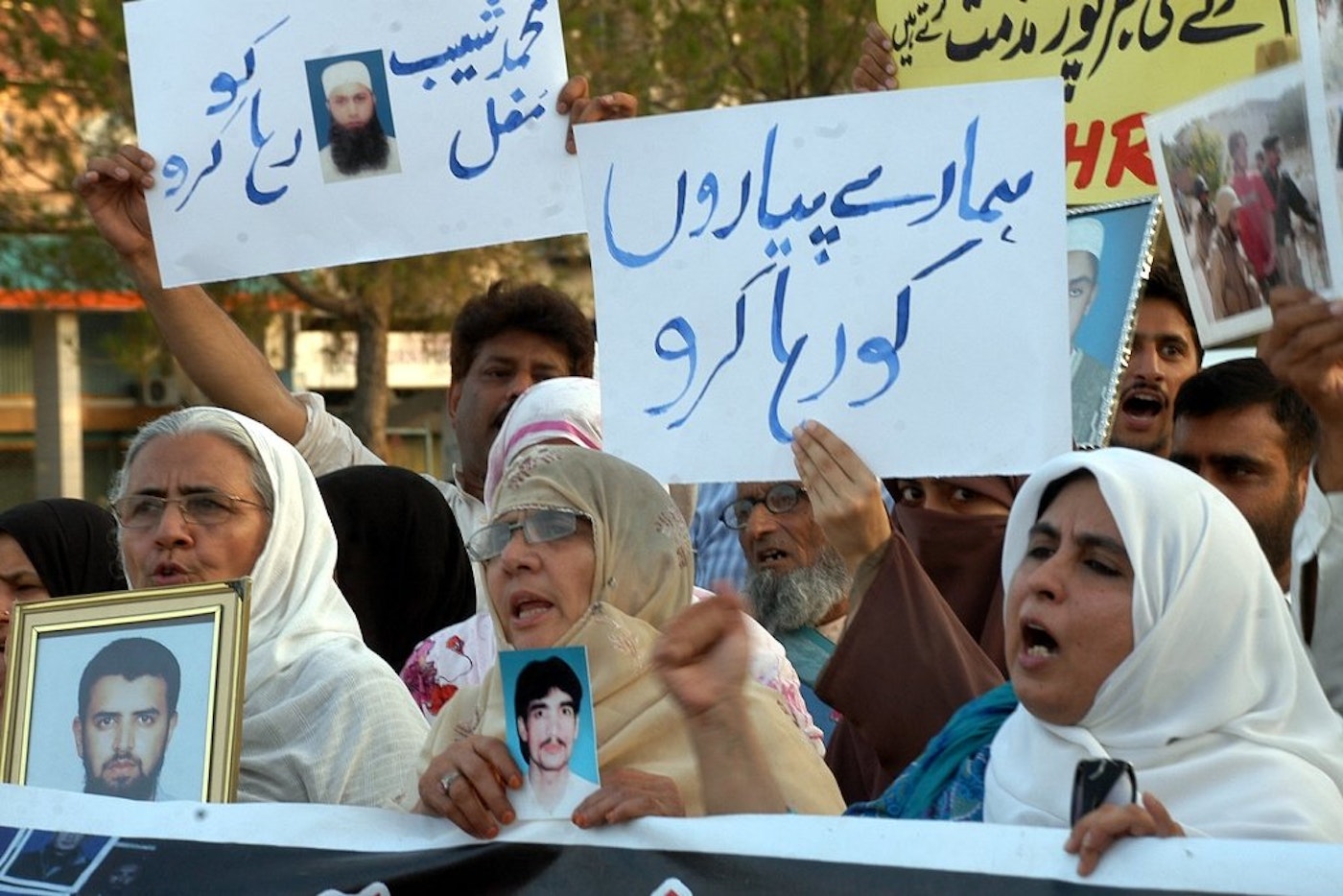
Amaliah: How can readers get involved in this campaign? What can they do to help?
Amina Masood Janjua: You can follow our work and keep up to date with all of our activities at Defence of Human Rights Pakistan by following us on Twitter, Facebook and Instagram, and also my personal accounts which are all open to the public I have visited the Parliaments of many European countries and spoken about this cause extensively. Organising events and talks, inviting support groups and human rights defenders to speaking can help build pressure on the Pakistani government to implement the law we are campaigning for and bring back all our loved ones that have been forcibly disappeared. We are currently working to support around 3,000 aggrieved families, many of whom are struggling to survive since the breadwinners in their family have been disappeared. Zakat and Sadqah donations can help us to help them get by, and provide them with the support they need as they endure this difficult trial. To all the people who are with us on the streets and in solidarity across the world, I thank you from the bottom of my heart. I also want to thank CAGE, especially Dr Asim who has supported us in this struggle and helped to amplify my voice.
Anyone who has raised their voice for us or taken one step to help us, anyone who has spent a single penny for our cause, anyone who has uttered a single word in solidarity with us…we pray for you a thousand times over, and we will remain grateful to you all our life.
Amaliah Team
This article was written by a member of the Amaliah team or a collective team effort. You can follow us on @amaliah_tweets for the latest or head over to our Instagram @amaliah_com. If you're reading this and are thinking about contributing an article then send us an email with a brief or a full article to contribute@amaliah.com
